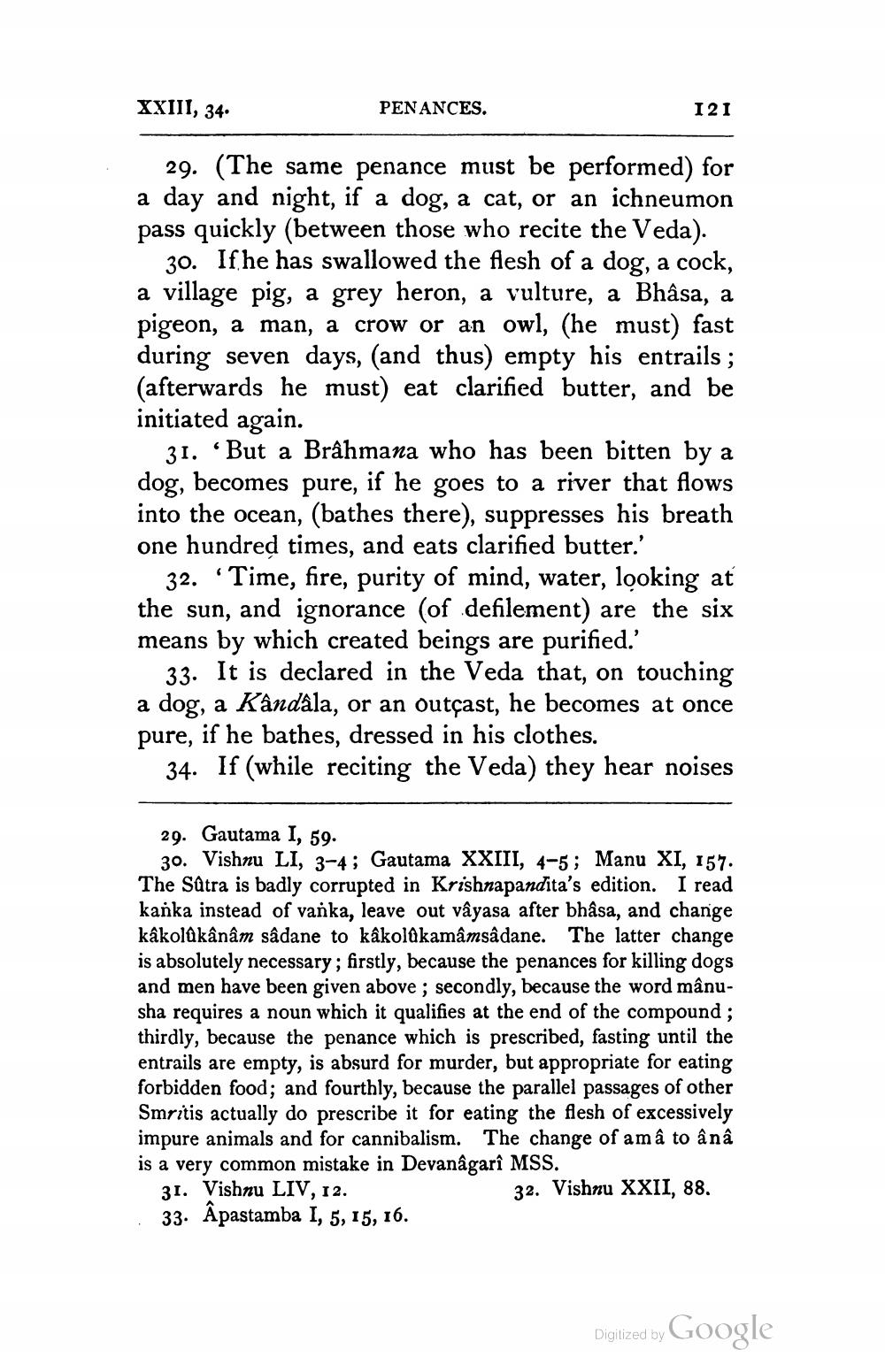________________
XXIII, 34.
PENANCES.
121
29. (The same penance must be performed) for a day and night, if a dog, a cat, or an ichneumon pass quickly (between those who recite the Veda).
30. If he has swallowed the flesh of a dog, a cock, a village pig, a grey heron, a vulture, a Bhâsa, a pigeon, a man, a crow or an owl, (he must) fast during seven days, (and thus) empty his entrails ; (afterwards he must) eat clarified butter, and be initiated again.
31. “But a Brâhmana who has been bitten by a dog, becomes pure, if he goes to a river that flows into the ocean, (bathes there), suppresses his breath one hundred times, and eats clarified butter.'
32. Time, fire, purity of mind, water, looking at the sun, and ignorance (of defilement) are the six means by which created beings are purified.'
33. It is declared in the Veda that, on touching a dog, a Kândâla, or an outcast, he becomes at once pure, if he bathes, dressed in his clothes.
34. If (while reciting the Veda) they hear noises
29. Gautama I, 59.
30. Vishnu LI, 3-4; Gautama XXIII, 4-5; Manu XI, 157. The Sätra is badly corrupted in Krishnapandita's edition. I read kanka instead of vanka, leave out vâyasa after bhâsa, and change kâkolûkânâm sâdane to kâkolůkamâmsâdane. The latter change is absolutely necessary; firstly, because the penances for killing dogs and men have been given above ; secondly, because the word mânusha requires a noun which it qualifies at the end of the compound; thirdly, because the penance which is prescribed, fasting until the entrails are empty, is absurd for murder, but appropriate for eating forbidden food; and fourthly, because the parallel passages of other Smritis actually do prescribe it for eating the flesh of excessively impure animals and for cannibalism. The change of amâ to ânâ is a very common mistake in Devanagarî MSS. 31. Vishnu LIV, 12.
32. Vishnu XXII, 88. 33. Âpastamba I, 5, 15, 16.
Digitized by Google




